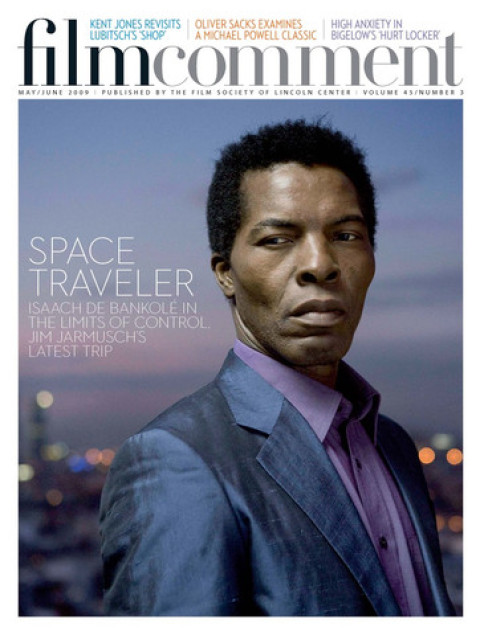
By the standard of the Godfather trilogy, The Conversation, Apocalypse Now, hell, even Bram Stoker’s Dracula, the new movie by Francis Ford Coppola feels slight, even a bit silly, but it’s exactly because of those films, because of that legacy that I love Tetro—every earnest, awkward, overwrought, and utterly unembarrassed moment of it. Destined to be met with condescension, it’s a quintessential Late Movie: intensely, intractably personal; sure of vision but unfashionably vulnerable; at once retrospective in content and forward-thinking in form; generous in spirit yet introverted in its obsessions; theatrical; gently hallucinated; out of time.
The Coppola family shrink would have a field day decoding the intergenerational angst, rivalries, and vendettas that course through Tetro, a family affair in more ways than one. Shot on black-and-white high-def in Argentina, with Roman Coppola handling second-unit duties, this small-scale indie overflows with affection for the ties that bind—and strangle—several generations of a creative clan. An enchanting crane shot opens the tale with Bennie (charming newcomer Alden Ehrenreich) wandering a Buenos Aires boulevard at night in search of his estranged brother Tetro, played by Vincent Gallo, superbly cast for his mesmerizing aura of megalomaniacal weirdness and wounded-bunny sensitivity. Under the watchful eye of Miranda (Maribel Verdú), Tetro’s preternaturally indulgent live-in lover, the arrival of li’l bro for an extended spell of couch-crashing gradually pries open a family history shrouded in secrets, lies, and the long, dark shadow cast by their domineering father (Klaus Maria Brandauer), a celebrated conductor.

Gestating for some time in the elegantly bohemian Tetro pad, the movie gradually elaborates its larger concerns and narrative shape once Bennie discovers his older brother’s abandoned autobiographical writings and sets about transcribing them—and then incorporating them into a play of his own. It’s fitting that Coppola should advance his career-long interest in familial clans and subcultures onto the stage, a return to his own early enthusiasm for the theater. And it’s wonderfully loopy that Tetro should climax at a Patagonian literary festival lorded over by the elusive critic “Alone” (Carmen Maura), who pushes the Bennie-Tetro psychodrama to a breaking point.
What spills out is a bit daft (less operatic than soap operatic) but symbolically just—the final, inevitable synthesis of Tetro’s kaleidoscopic swirl of period, style, identity, and the irresistible suggestion of Coppola family avatars. The movie deliquesces in the mind. Flashbacks erupt in full color; official histories are staged, ratified, or debunked. Watching Tetro, Coppola’s first original screenplay in some 30 years, is like eavesdropping on someone’s dream.








